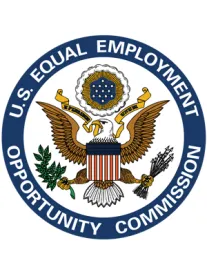The Equal Employment Opportunity Commission (“EEOC”) recently announced new nationwide changes to the procedures relating to its investigation of administrative charges filed against employers. When an individual files a charge against an employer, the EEOC may ask the employer to submit a position statement responding to the allegations, typically within 30 days. Under the old system, the procedure for handling these position statements varied based on the local practices of each EEOC District Office. The new system establishes a uniform nationwide procedure for all requests for position statements made on or after January 1, 2016.
Under the new system, the charging party will be notified of his or her right to request a copy of the employer’s position statement at the time he or she files a charge.[1] The charging party will be afforded 20 days from receipt of the position statement to submit a verbal or written response to the employer’s position statement and any supporting evidence. The employer will not be provided a copy of the charging party’s response, but the EEOC may request additional evidence from the employer if needed to complete the investigation.
Below are a few important strategic and procedural points that employers should consider:
-
Analyze the specific claims made in the charge and which facts are necessary to answer those claims. Carefully consider whether and what evidence and information is necessary to respond to the charge. Refrain from sharing non-essential information.
-
Analyze how the facts to be provided may be used in future litigation or may affect the charging party. An employer’s position statement may serve as a valuable preview of its strategy during the investigation and later in civil litigation. Savvy plaintiffs and their lawyers may use this procedure to better tailor their arguments and civil complaints, and circumvent or defeat anticipated defenses. Worse still, this benefit is not reciprocal, since the employer is not permitted to review the charging party’s response during the investigation. Also, the contents of the position statement may have an unintended adverse impact on the charging party seeing it early in the investigation stage, so care should be taken with the statements made by the employer.
-
Consider whether it is necessary to use confidential information in support of the position statements. The new EEOC procedure allows an employer to simply refer to information it considers confidential in its position statement and provide the confidential information to the EEOC in a separate attachment. In order to take advantage of this procedure, the employer will need to justify the decision to segregate the confidential information. If the information is deemed confidential, the EEOC will not produce and/or will redact the confidential information before providing the information to a charging party. While it is not expressly permitted by the revised procedures, consider providing an approved “redacted version” of the position statement and supporting evidence to the EEOC, to decrease the chances of an inadvertent release of sensitive information.
-
Retain experienced counsel to assist in the preparation of position statements. The EEOC is expected to be more active in its investigations and enforcement. Litigating against an organization like the EEOC can differ greatly from defending claims brought by an individual on his or her own behalf. Thus, while it is important to provide facts sufficient to allow the EEOC investigator to thoroughly investigate the charge, the goal is to balance the interests at play and provide a position statement that is succinct and well supported, with extraneous/confidential information kept to a minimum.
[1] In the past, position statements were subject to disclosure under the Freedom of Information Act following the dismissal of the underlying charge.



 />i
/>i
